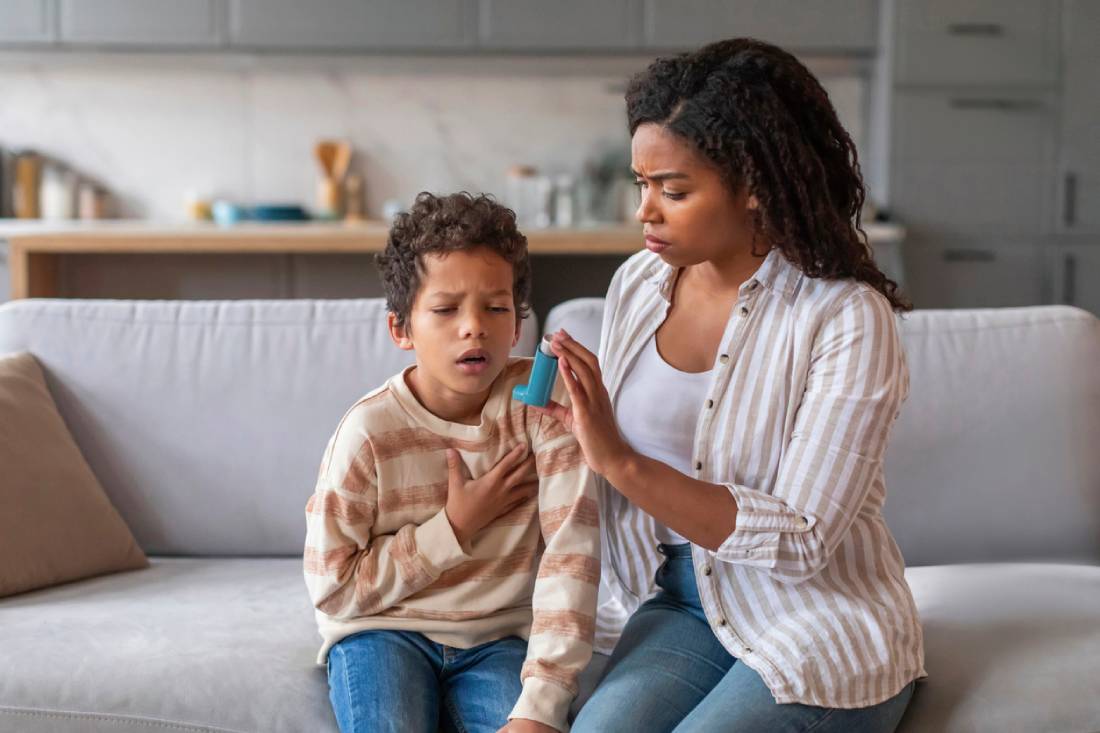Asthma can be a very debilitating condition that heavily impacts one’s quality of life. When you are a kid, it can seriously inhibit your ability to engage in normal kid-friendly activities that build social skills and help you function normally. Learning the skills and medical practices that can help you manage your asthma is essential for those who want to live a healthy life despite this condition. This is true for both adults and children. If you have a child with asthma and would like to know if kids with asthma can live a normal life, take a look at this guide that can help you navigate pediatric lung care.
What is Childhood Asthma?
Childhood asthma refers to asthma that develops in the very early stages of a child’s life. Childhood asthma shares many of the symptoms of adult asthma. However, these symptoms have the potential to impact a child’s health and long-term development differently and more substantially than they affect an adult’s.
Symptoms of Childhood Asthma
Childhood asthma presents many symptoms to stay aware of. Educating yourself about these symptoms can help you with the long-term management of your child’s asthma. Common childhood asthma symptoms include:
- Reduced level of energy during play
- Complaints of chest tightness or chest pain
- Wheezing when they breathe
- Retractions when one breathes (an indication of labored breathing)
- Irritability and mood swings
- Difficulty eating or breastfeeding
- Coughing fits
The symptoms listed above typically relate to chronic or low-intensity asthma. The following symptoms can be indicative of an acute asthma attack:
- Acute worsening of breath
- Life-threatening breathing problems
- Changes in skin color or tone
- Difficulty speaking or communicating
- Increased respiratory rate while resting
Diagnosing Childhood Asthma
It can be difficult to diagnose asthma in children younger than the age of 6. This is partly due to the fact that the symptoms of asthma are shared with many other medical conditions.
To make a diagnosis, your child’s pediatrician will observe a set of factors that might contribute to the development of asthma. Factors to be considered will typically include the results of a physical examination, as well as your child’s medical history.
In addition, there are medical tests that can be utilized to assist a physician with making a diagnosis:
- Allergy Skin Testing: These tests can help identify whether allergens might be triggering your child’s asthma.
- Lung Function Tests: This is a type of test that measures the amount of air that your child’s lungs can take in. These results will help your child’s physician determine the general severity of the asthma in play.
- Chest X-rays: X-rays can help rule out the presence of other conditions that can produce conditions similar to asthma.
Treating Childhood Asthma
Each case of asthma is highly unique, so treating asthma involves coming up with a personalized treatment plan that fits the needs of the patient. Certain elements are typically considered when your doctor outlines what your treatment plan should include. Treatments often include the following:
- What to do in case of an asthma attack
- When to seek emergency care
- When and how often your child should take asthma medication
As your child grows and develops, the elements of their asthma treatment plan are also liable to change.
Can Kids with Asthma Live a Normal Life?
Fortunately, with proper management and care, a child with asthma can be fully capable of living a normal existence. That said, if their asthma continues through adulthood, they will likely need to adjust treatment during their lifetime to maintain their lung health.
As a parent, you can do your part by ensuring that your child sticks to the asthma management plan that your physician develops. Developing a good relationship with your child’s lung specialist can also help refine their treatment regimen.
The Best Asthma Specialist in NYC
Dr. Mayank Shukla is a pediatric asthma specialist who practices out of NYC. If you want to speak with a highly-rated professional about how to improve your child’s outlook regarding their asthma, contact our offices today to set up a consultation.

